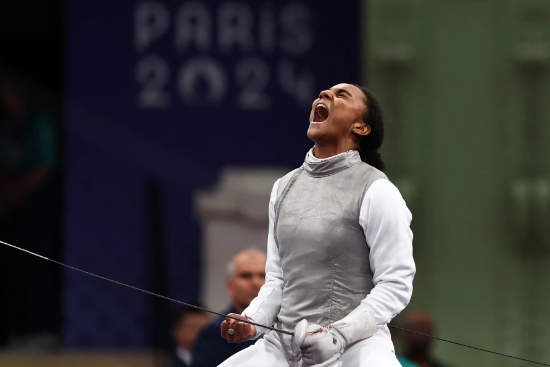The official Olympics broadcaster has urged camera operators to film male and female athletes in the same manner to avoid “stereotypes and sexism” in coverage, its CEO announced on Sunday. The Paris Olympics are historic for achieving gender parity among athletes and increasing prime-time broadcast spots for women’s sports to elevate their profile.
With the Games in full swing, the head of Olympic Broadcasting Services (OBS) stated that his organization has updated its guidelines for camera operators, the majority of whom are men. OBS is responsible for the TV coverage of the Olympics, providing images to rights holders worldwide.
“Unfortunately, in some events they (women) are still being filmed in a way that you can identify that stereotypes and sexism remains, even from the way in which some camera operators are framing differently men and women athletes,” chief executive Yiannis Exarchos told reporters in Paris.
“Women athletes are not there because they are more attractive or sexy or whatever. They are there because they are elite athletes.”
He said the problem was mainly down to “unconscious bias”, with camera operators and TV editors tending to show more close-up shots of women than men.
A number of scheduling changes have been made by Olympics organisers in Paris to boost women’s sport. The women’s marathon is set to be the final event of the Games instead of the men’s race.
“The schedules of sporting events have traditionally been biased towards highlighting men’s events,” Exarchos said.
“Traditionally, in team sports, you have first women’s finals, and then the men’s final… In strength and combat sports, traditionally you have women’s competitions in the morning and men’s competitions in the afternoon.”
Marie Sallois, the director in charge of gender equality at the International Olympic Committee, stated that the Paris Games are “de facto the world’s largest platform to promote gender equality in and through sport.
” She highlighted “symbolic moments” in the opening ceremony on Friday, where almost all delegations featured both a man and a woman as flag bearers, and the artistic show paid tribute to influential women in French history.
When the ancient Greek Olympics concept was revived by French aristocrat Pierre de Coubertin in the late 19th century, it was seen as a celebration of gentlemanly athleticism “with female applause as its reward.”
In 1924, the last time the Olympics were held in Paris, only four percent of competitors were women, and they were restricted to sports deemed “suitable” for them, such as swimming, tennis, and croquet.



